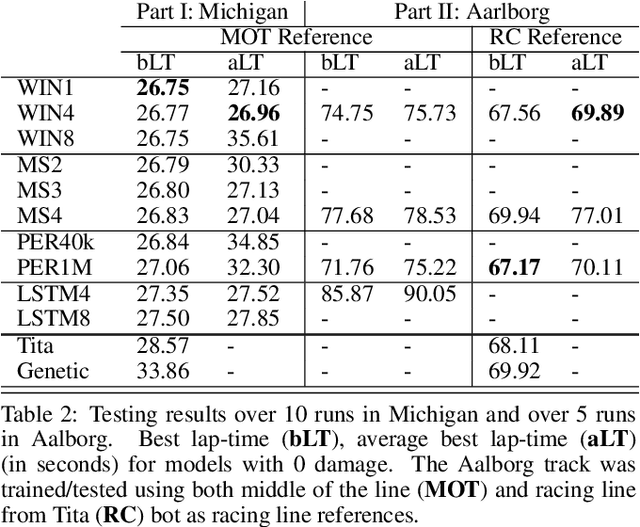Sarah Krebs
Formula RL: Deep Reinforcement Learning for Autonomous Racing using Telemetry Data
Apr 22, 2021



Abstract:This paper explores the use of reinforcement learning (RL) models for autonomous racing. In contrast to passenger cars, where safety is the top priority, a racing car aims to minimize the lap-time. We frame the problem as a reinforcement learning task with a multidimensional input consisting of the vehicle telemetry, and a continuous action space. To find out which RL methods better solve the problem and whether the obtained models generalize to driving on unknown tracks, we put 10 variants of deep deterministic policy gradient (DDPG) to race in two experiments: i)~studying how RL methods learn to drive a racing car and ii)~studying how the learning scenario influences the capability of the models to generalize. Our studies show that models trained with RL are not only able to drive faster than the baseline open source handcrafted bots but also generalize to unknown tracks.
 Add to Chrome
Add to Chrome Add to Firefox
Add to Firefox Add to Edge
Add to Edge